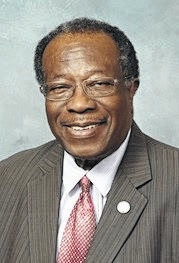


With cuts to drivers education looming, a group of state lawmakers are working to help ease the burden on districts throughout North Carolina.
As of July 1, the General Assembly made a decision to eliminate funding for the program, leaving it up to school systems or parents to fund it.
A bill was recently introduced in the North Carolina House of Representatives proposing options through a dedicated funding stream to maintain drivers educations as a mandatory requirement for all students, subsidizing the costs. Nicknamed the “Drivers Ed Bill,” House Bill 919 includes revenues from unclaimed lottery prize money for the 2015-16 fiscal year and late fees on motor vehicle registration.
Dr. Stuart Blount, superintendent of Clinton City Schools (CCS), believes that funding should be provided for the program.
“I definitely agree that if the state is going to mandate that we still teach that course, any funding, whether it’s partial, as least some funding would be helpful,” Blount said. “That portion of funding would be a burden that we’ll have to observe somewhere else.”
While portions of lottery and registration funds may help, Blount believes it may not be a stable source.
“That’s a still a fluctuating stream of money,” Blount said. “It’s not a guaranteed funding stream.”
Dr. Eric Bracy, superintendent of Sampson County Schools (SCS), supports the bill as well. His support was based on the safety involved in preparing students to pass the driver license examination and making them responsible drivers. He also backs it becuase of the cost that will be incurred by local districts and parents, if the bill does not pass.
Both CCS and SCS are dealing with tight fiscal budgets, which is why local officials hope legislators change their minds regarding the elimination of funding.
“In an already tight fiscal year, we need the continued funding from the state,” Bracy said.
He continued to stress that parents like the support of professionals training their students to drive.
“We want to continue to provide drivers education training and help make students safe, responsible motor vehicle operators,” Bracy said.
Provisions include decreasing student charges from $65 to $45. It also includes a comprehensive review of the state’s curriculum to comply with the national Novice Teen Driver Education and Training Administrative Standards. Legislators believe the subsequent revisions will ensure that instruction in drivers education is consistent with best practices and safety standards.
If passed, the act will go into effect, July 1.
The primary sponsors include Reps. Pat Hurley, Linda Johnson, Becky Carney and John Torbett. Like the local superintendents, Rep. Larry Bell believes that the state should have a dedicated source of funding for the mandated program, which teaches beginning drivers. He also implied that providing the education is just as important as other causes to save young people.
“But we have more young people who get killed probably through automobile accidents, than we do anything else,” he said. “That’s why I think it’s very important that we do all that we can to try to make it as safe as possible; proper training is one of those things that we can provide for them to help remedy that.”
Bell spent about 36 years in leadership positions for Sampson County Schools, the last years as its superintendent. During his tenure, he remembered when coaches taught drivers education and alluded to how it should be operated within districts, instead of being provided by outside instructors.
“I don’t see any reason to change it, it’s been working very well,” Bell said.
Sam Deyton, president of the North Carolina Driver & Traffic Safety Education Association (NCDTSEA), said the bill will ensure that the state maintains a high educational standard for students and keeps public safety on roads as a primary concern.
“This legislation does the right thing in the right way, and I hope and expect it can be move quickly through the legislative process, Deyton said.
NCDTSEA advocates for maintaining funding for driver education and encourages high standards for training. It includes driver education instructors and is made up of representative from both the public and private sector.

